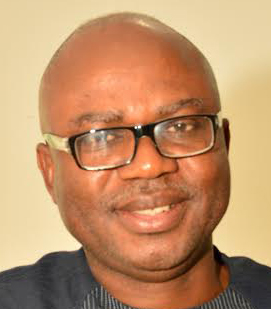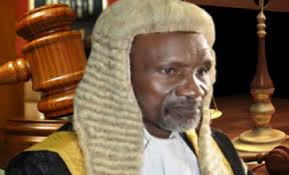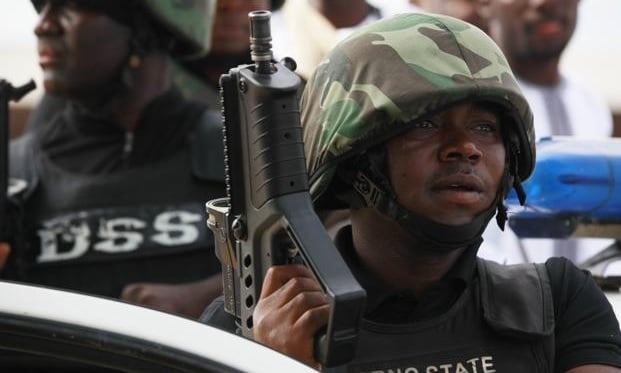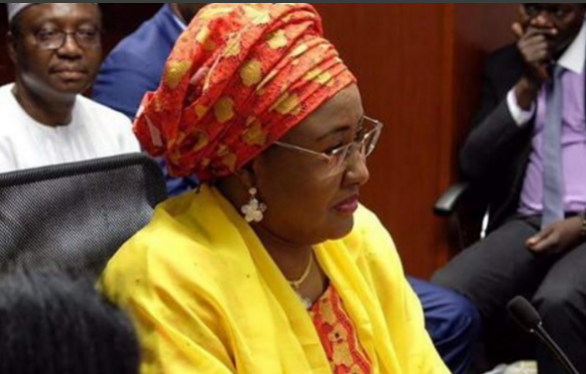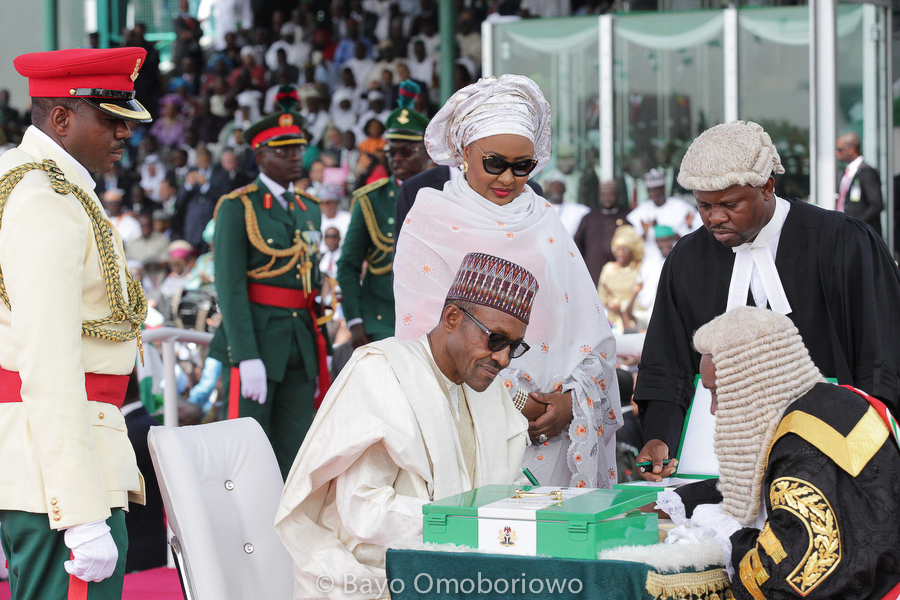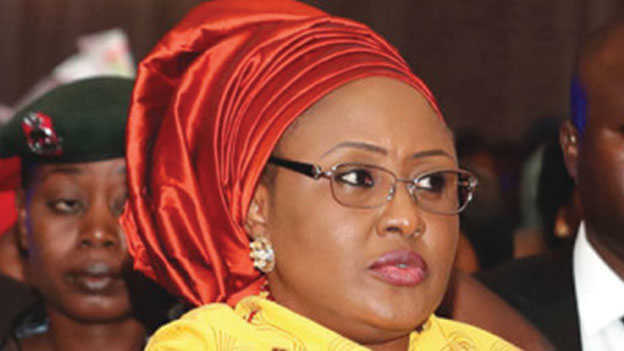Nobody should ask me to clap for President Muhammadu Buhari because DSS operatives raided the homes of seven or eight judges in the dead of night last weekend. Rather than clap, I’ve been afraid – very afraid of the consequences of scorching a snake and not killing it. A statement of the National Judicial Council upbraiding the executive for attempting to “cow” the judiciary has confirmed my fears.
There is nothing better to believe than the charge by Mrs Aisha Buhari that her husband’s government has been hijacked by those who don’t mean well for the country. Where are the intelligentsia that ought to guide this government? Where are people that burn the midnight oil thinking out policies and drawing plans for their successful implementation?
When Buhari appointed Itse Sagay to head a committee, I thought the panel would always be ready with advice on how to fight the anti-corruption war without upsetting the law. Meanwhile, Vice-president Yemi Osinbanjo is, like Sagay, a professor of law. Why, then, would they sanction actions that a body like the NJC would consider illegal or unjust?
Buhari’s ear infection might not have been treated well. Had the ailment that took him to London some months ago been healed, he would have heard the alarm bell long ago. Now, he has plunged the nation into deeper trouble, and I don’t think we’ll come out of it in one piece again. In a nation where almost everyone is forced by harsh economic conditions to depend less on salaries, selective war on corruption can only make matters worse.
Advertisement
Nigerian law itself is a product of corruption. That’s why House speaker Yakubu Dogara confidently said on tape that “budget padding is not a crime under Nigerian law”. He’s right. He should know, as a lawyer. Everyone has identified the 1999 Constitution as a lie because it lies in its very first sentence. The military regimes, which had no respect for the law, bequeathed to us a constitution that was defective and a presidential system that is ruinously expensive.
Any leader that seeks to effect a change must work on the substructure (the constitution) before anything else. But our leaders have chosen to discard three national conferences convened from 1994 for the one dictated by a small number of people in one room in 1999. The legislature cannot change it because legislators are the major beneficiaries of its largesse. And so, what we’ve had is a plutocracy sustained by an oil boom. Any wonder that the nation’s economy is crumbling due to a hiccup in oil price?
A successful war on corruption in the three arms of government could be fought only if there’s a state of emergency during which the president would have powers to act outside of the constitution, and the powers of the legislature and the judiciary would be whittled down. I thought that was the idea of the rumoured “economic emergency powers” the president was to seek in September. But the best time Buhari should have declared a state of emergency was in June 2015.
Advertisement
During a period of emergency, the president would rule by decree. He could constitute a truth commission or any other task force (whose judgment won’t be appealable) to try corruption cases. For long I’ve been suggesting that Nigeria should have a law that would empower the state to seize all proceeds of crime. It would be possible to compel anyone that appeared before a truth commission to prove the source of their wealth or show trees in their compound that produced dollar and naira bills. Thus, a civil servant whose entire income in 35 years cannot buy a new car but owns estates worth billions of naira would forfeit them. Judges found with millions of dollars and pounds won’t be able to convince anyone about the source of their wealth.
As things stand now, Buhari won’t be able to retrieve much of what has been stolen from public funds over the years. Because the justice system is very weak here, looters would always share a part of their loot with judges and lawyers whose preoccupation is to exploit loopholes in the law. They would always do battle at courts of law, not courts of justice. And I know that the number of corrupt judges in Nigeria presently is not eight or 16 but perhaps 1, 600. The EFCC or the attorney-general of the federation won’t take the suspects to God’s own court; they would take them to the same Nigerian courts most of which are led by corrupt judges. In fact, few of them would convict their colleagues, except out of envy.
When we get ready to fight corruption, the world will know. All the billion-naira mansions in the highbrow areas of Abuja, Lagos, Port Harcourt, Kano and other cities would be seized or devalued by property taxes. Every bank account containing more than N50million would have a question mark around it. There would be no subsidy on foreign exchange or imports of items Nigeria can produce. Our borders wouldn’t be porous anymore. Other forms of corruption like nepotism, electoral fraud and sabotage would be banished.
Is Buhari equal to the task? If cleansing of the executive or judiciary must be done, it must be total – no political party, politician or judge should be exempted. It’s better he didn’t start the war at all than leave it halfway.
Advertisement
Do this for health security
Some of us have been lamenting the several deaths of children that occur daily in internally displaced persons (IDP) camps, especially in north-eastern Nigeria. Unknown to many, however, the entire country is one huge IDP camp! I reached that conclusion after listening to an NGO, Partnership for Advocacy in Child and Family Health (PACFaH), at a media forum on Friday night.
Here is a country where, according to statistics made available by WHO and UNICEF, over 2million babies under age 5 die annually, mainly on account of malnutrition and curable diseases like malaria, pneumonia and diarrhoea; where many women die during or after childbirth; and where four out of every 10 children are stunted.
In Nigeria, international donor agencies fund most family planning and immunisation projects. So even the 3% to 5% the federal government allocates to health in its annual budgets, I believe, is consumed by recurrent expenses – or stolen outright. Yet, Nigeria is a signatory to the 2001 Abuja Plan (of African heads of states and governments) for each nation to allocate 15% of its budget to health. While smaller nations like Ghana, Botswana, Rwanda and Kenya have since exceeded the mark, the “giant of Africa” is yet to take a positive step.
Government at all levels should, as a matter of urgency, begin to pay unusual attention to the health of Nigerians, particularly children and women of reproductive age. Security is not just about fighting terrorists, armed robbers and kidnappers with weapons; malnourished kids who survive but get stunted today will be tomorrow’s terrorists, robbers and kidnappers.
Advertisement
Shall we hear the good news in the 2017 budget address? Rather than allocate N28bn to health as they did in 2016, the federal authorities should allocate – and spend – at least N280billion in 2017. It won’t be sufficient still, but let’s see a new beginning. When health is lost, everything else is lost.
*Nwamu is CEO of Eyeway.ng
Advertisement
+234-8054100220 (SMS only)
Advertisement
Views expressed by contributors are strictly personal and not of TheCable.
